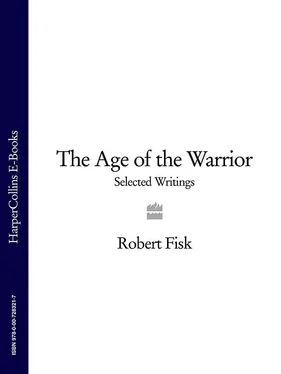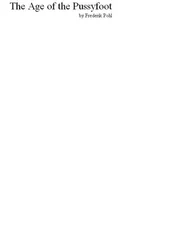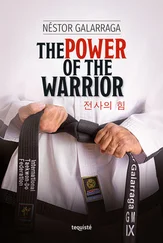Cry havoc and let slip the dogs of war
Poor old Bardolph. The common soldier, the Poor Bloody Infantry, the GI Joe of Agincourt, survives Henry IV , only to end up on the end of a rope after he’s avoided filling up the breach at Harfleur with his corpse. Henry V is his undoing – in every sense of the word – when he robs a French church. He must be executed, hanged, ‘pour encourager les autres’. ‘Bardolph,’ laments his friend Pistol to Fluellen, ‘a soldier firm and sound of heart… hanged must’ a be –
A damned death!
Let gallows gape for dog, let man go free, And let not hemp his wind-pipe suffocate: But Exeter hath given the doom of death… Therefore go speak, the duke will hear thy voice; And let not Bardolph’s vital thread be cut… Speak, captain, for his life…
How many such military executions have been recorded in the past thirty years of Middle East history? For theft, for murder, for desertion, for treachery, for a momentary lapse of discipline. Captain Fluellen pleads the profoundly ugly Bardolph’s cause – not with great enthusiasm, it has to be said – to Henry himself.
… I think the Duke hath lost never a man, but one that is like to be executed for robbing a church, one Bardolph, if your majesty know the man: his face is all bubukles and whelks, and knobs, and flames o’ fire, and his lips blows at his nose…
But the priggish Henry, a friend of Bardolph in his princely, drinking days (shades of another, later Prince Harry), will have none of it:
We would have all such offenders so cut off. And we give express charge that in our marches through the country there be nothing compell’d from the villages, nothing taken but paid for, none of the French upbraided or abused in disdainful language…
In France, Eisenhower shot post-D-Day rapists in the US army. The SS hanged their deserters even as Berlin fell.
And I never pass the moment when Shakespeare’s French king asks if Henry’s army ‘hath passed the river Somme’ without drawing in my breath. Did some faint moment of Renaissance prescience touch the dramatist in 1599? But I have still to be convinced that Shakespeare saw war service in the army of Elizabeth. ‘Say’st thou me so?’ Pistol asks of a cringing French prisoner who does not speak English. ‘Come hither, boy, ask me this slave in French/What is his name.’ I heard an almost identical quotation in Baghdad, shorn of its sixteenth-century English, when a US Marine confronted an Iraqi soldier- demonstrator in 2003. ‘Shut the fuck up,’ he screamed at the Iraqi. Then he turned to his translator. ‘What the fuck’s he saying?’ At the siege of Harfleur, the soldier Boy wishes he was far from battle – ‘Would I were in an alehouse in London! I would give all my fame for a pot of ale, and safety’ – and Henry’s walk through his camp in disguise on the eve of Agincourt evokes some truly modern reflections on battle. The soldier Bates suggests to him that if the king had come on his own to Agincourt, he would be safely ransomed ‘and a many poor men’s lives saved’.
The equally distressed soldier Williams argues that if the English cause is doubtful, ‘… the king himself hath a heavy reckoning to make when all those legs and arms and heads, chopp’d off in a battle, shall join together at the latter day and cry all “We died at such a place” some swearing, some crying for a surgeon, some upon their wives left poor behind them, some upon the debts they owe, some upon their children rawly left…’
This bloody accounting would be familiar to any combat soldier, but Shakespeare could have heard these stories from the English who had been fighting on the Continent in the sixteenth century. I’ve seen those chopped-off legs and arms and heads on the battlefields of the Middle East, in southern Iraq in 1991 when the eviscerated corpses of Iraqi soldiers and refugee women and children were lying across the desert, their limbs afterwards torn apart by ravenous dogs. And I’ve talked to Serb soldiers who fought Bosnian Muslims in the battle for the Bihac pocket, men who were so short of water that they drank their own urine.
Similarly, Shakespeare’s censorious Caesar Augustus contemplates Antony’s pre-Cleopatran courage:
When thou once
Was beaten from Modena,… at thy heel
Did famine follow, whom thou fought’st against,… with patience more
Than savages could suffer. Thou didst drink
The stale of horses and the gilded puddle
Which beasts would cough at…
Yet Wilfred Owen’s poetry on the ‘pity of war’ – his description, say, of the gassed soldier coughing his life away, the blood gargling ‘from the froth-corrupted lungs’ – has much greater immediacy. True, death was ever present in the life of any Tudor man or woman; the Plague that sometimes closed down the Globe Theatre, the hecatomb of child mortality, the overflowing, pestilent graveyards, united all mankind in the proximity of death. Understand death and you understand war, which is primarily about the extinction of human life rather than victory or defeat. And despite constant repetition, Hamlet’s soliloquy over poor Yorick’s skull remains a deeply disturbing contemplation of death:
My gorge rises at it. Here hung those lips that I have kiss’d I know not how oft. Where be your gibes now, your gambols, your songs, your flashes of merriment that were wont to set the table on a roar? Not one now to mock your own grinning quite chapfall’n?
And here is Omar Khayyam’s contemplation of a king’s skull at Tus – near the modern-day Iranian city of Mashad – written more than 400 years before Shakespeare’s Hamlet stood in the churchyard at Elsinore:
I saw a bird alighted on the city walls of Tus Grasping in its claws Kaika’us’s head: It was saying to that head, ‘Shame! Shame! Where now the sound of the bells and the boom of the drum?’
The swiftness with which disease struck the living in previous centuries was truly murderous. And I have my own testimony of how quickly violent death can approach. Assaulted by a crowd of Afghans in a Pakistani border village in 2001 – their families had just been slaughtered in an American B-52 air raid on Kandahar – an ever-growing crowd of young men were banging stones on to my head, smashing my glasses into my face, cutting my skin open until I could smell my own blood. And, just for a moment, I caught sight of myself in the laminated side of a parked bus. I was crimson with blood, my face was bright red with the stuff and it was slopping down my shirt and on to my bag and my trousers and shoes; I was all gore from head to foot. And I distinctly remember, at that very moment – I suppose it was a subconscious attempt to give meaning to my own self-disgust – the fearful ravings of the insane Lady Macbeth as she contemplates the stabbing of King Duncan: ‘… who would have thought the old man to have had so much blood in him?’
Shakespeare would certainly have witnessed pain and suffering in daily London life. Executions were staged in public, not filmed secretly on mobile telephones. But who can contemplate Saddam’s hanging – the old monster showing nobility as his Shi’ite executioners tell him he is going ‘to hell’ – without remembering ‘that most disloyal traitor’, the condemned Thane of Cawdor in Macbeth , of whom Malcolm was to remark that ‘… nothing in his life/Became him like the leaving it’? Indeed, Saddam’s last response to his tormentors – ‘to the hell that is Iraq?’ – was truly Shakespearean.
How eerily does Saddam’s shade haunt our modern reading of Shakespeare. ‘Hang those that talk of fear!’ must have echoed through many a Saddamite palace, where ‘mouth-honour’ had long ago become the custom, where – as the casualties grew through the long years of his eight-year conflict with Iran – a Ba’athist leader might be excused the Macbethian thought that he was ‘in blood/Stepp’d in so far that, should I wade no more,/Returning were as tedious as go o’er’. The Iraqi dictator tried to draw loose inspiration from the Epic of Gilgamesh in his own feeble literary endeavours, an infantile novel which – if David Damrosch is right – was the work of an Iraqi writer subsequently murdered by Saddam. Perhaps Auden best captures the nature of the beast:
Читать дальше












